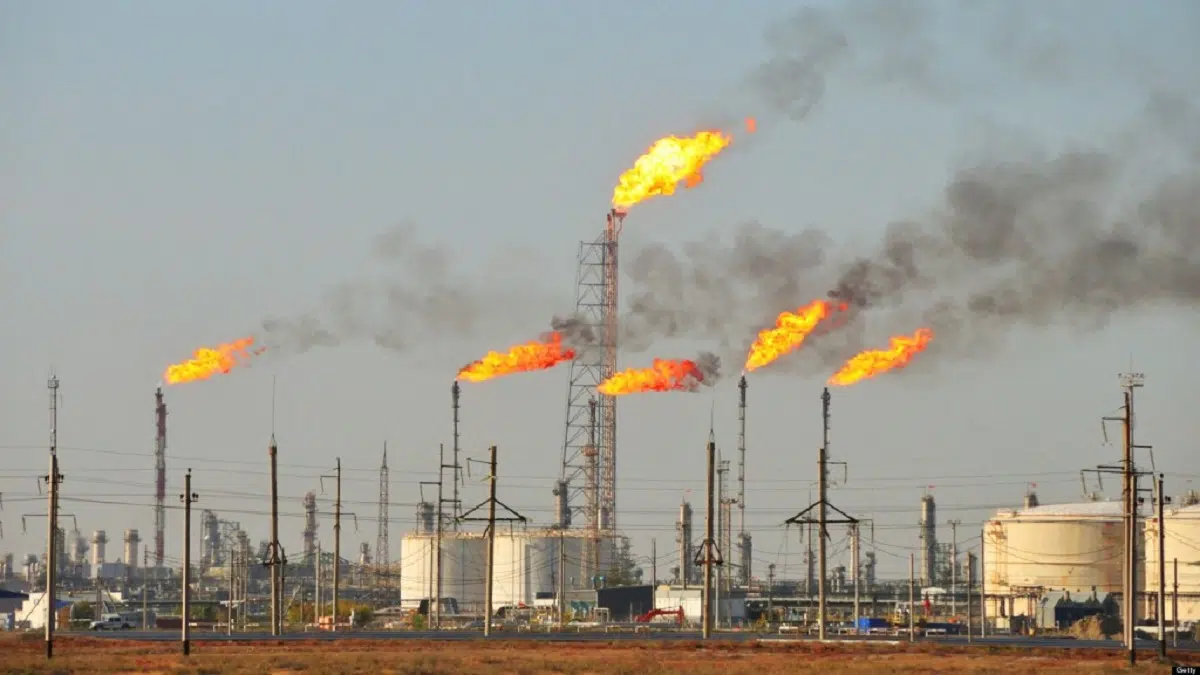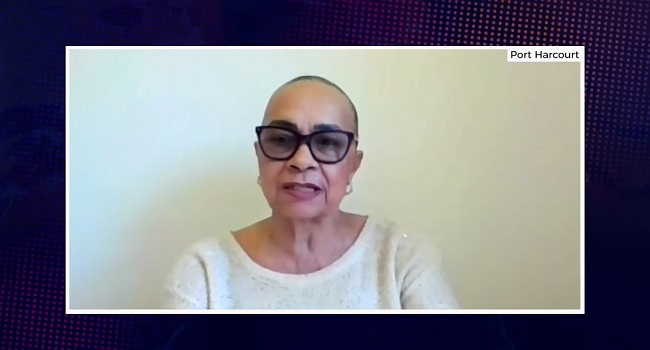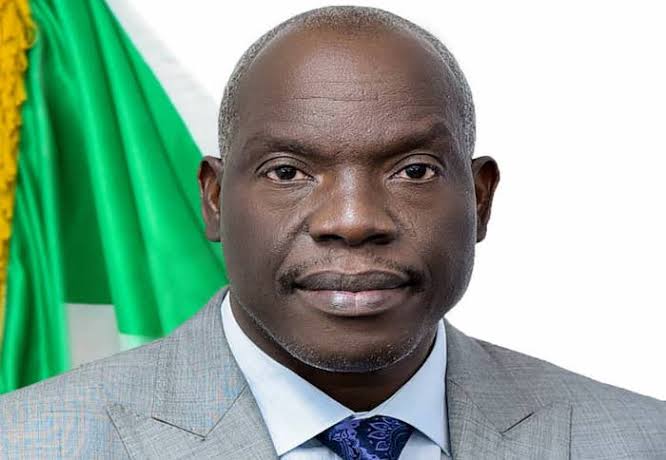Oil and Gas
NUPRC shortlists 139 firms for commercialised gas flare programme

NUPRC shortlists 139 firms for commercialised gas flare programme
The Nigerian Upstream Petroleum Regulatory Commission (NUPRC) has shortlisted 139 firms that applied for Nigerian Gas Flare Commercialisation Programme (NGFCP).
About 300 companies applied to the gas buying and trading scheme to end gas flaring from 48 oil production sites in the country.
The Chief Executive Officer (CEO) of NUPRC, Gbenga Komolafe said this at the NGFCP bidders’ conference and investors’ forum, on Thursday in Abuja.
He said the forum was being organised to intimate qualified applicants, partners, sponsors and technology providers on the structure of the “Request for Proposal (RFP)”.
Komolafe said it was also an opportunity to provide further guidance on the upcoming programme of activities while listening and collating feedback from all participants towards optimising the RFP phase.
He said that the programme received about 300 applications during the Statement of Qualification (SOQ) phase of this bid process before the emergence of the 139 successful applicants in line with the RFQ published criteria.
“Therefore, for all qualified applicants, your success on the SOQ stage is no mean feat, however, that was only the start of the journey as the real deal is in making a robust and competitive proposal.
“This proposal must be with demonstrable evidence for capacity to deliver on the flare monetisation projects, in line with the terms of the RFP would be your desired destination.
“Apart from forestalling the deleterious impacts of gas flaring on the environment, the programme also ends the wanton wastage of our premium economic resource.
“In today’s carbon-constrained world, where fossil fuel is becoming less popular, in view of issues of climate change, natural gas has assumed a stature of significant importance as the bridging fuel for many oil and gas producing nations.
“For us here in Nigeria, gas has been adopted as our transition fuel to drive the industrialisation of the Nation’s economy in line with the expectations of the Decade of Gas initiatives launched by the Government,” Komolafe said.
The NUPRC boss further said that the NGFCP scheme also targeted at creating investment and employment opportunities as well as encouraging increased capital inflow to the Nigerian Oil and Gas sector.
He noted that the value derivable was multifaceted as it aligned with the focus areas of the country’s sustainable development goals.
“The NGFCP 2022 is first among a series of competitive auctions whereby Flare Gas that would otherwise have been directed to flare will be put on sale by the Commission to interested entities as prospective title holders of the flare gas.
“In this programme, prospective bidders are expected to submit bid proposals in line with the requirements and terms of the RFP, covering such areas as technical, commercial, financial, and other relevant information regarding the project that the qualified applicant intends to develop.
“Such projects may include a plan to use the gas as fuel or feedstock or both for products to be disposed of in either the domestic or international markets.
“All Proposals from bidders will be judged strictly on their merits according to the criteria published in the RFP document which has since been uploaded on the NGFCP portal,” he said.
He said that applicants for the second phase of the programme would have access to the data room for data prying and leasing, including a suite of commercial agreements, for the 48 gas flare sites on offer in the NGFCP 2022.
According to Komolafe, the precise flare sites, volumes and compositions of gas offer would be accessed in the data room available to the applicants via the NGFCP 2022 portal upon payment of relevant fees as prescribed in the RFP.
“The Data room sessions will be held virtually to provide flexibility and comfort to all participants.”
He assured that the commission would ensure an open, transparent, competitive, and non-discriminatory bidding process in line with the provisions of Section 74 of the Petroleum Industry Act.
Also speaking, the Manager of the Legal Unit of NUPRC, Austin Okwah said the bidding companies were expected to submit their proposals online and physically and must contain details of their mandatory consortium information.
Okwah said the proposals must also contain bid bonds issued by reputable banks or insurance companies.
He listed three agreements that underpinned the programme including Milestone Agreement which defined programme conceptualisation (agreement between the commission and flare gas buyer).
Others are Gas Sales Agreement which had quantity limitations and guarantee as well as Connection Agreement which required taking the gas from the flare harder to the project site and operation procedures.
NUPRC shortlists 139 firms for commercialised gas flare programme
Africa
Customs hands over illicit drugs worth N117.59m to NDLEA

The Nigeria Customs Service (NCS), Ogun Area 1 Command, has handed over illicit drugs worth N117.59 million to the National Drug Law Enforcement Agency (NDLEA).
The Comptroller of the command, Mr James Ojo, disclosed this during the handing over of the drugs to Mr Olusegun Adeyeye, the Commander of NDLEA, Idiroko Special Area Command, in Abeokuta, Ogun, on Friday.
Ojo said the customs handed over the seized cannabis and tramadol tablets to the Idiroko Special Command for further investigation in line with the standard operating procedures and inter-agency collaboration.
He said the illicit drugs were seized in various strategic locations between January and November 21, 2024, in Ogun State.
He added that the illicit drugs were abandoned at various locations, including the Abeokuta axis, the Agbawo/Igankoto area of Yewa North Local Government Area, and Imeko Afton axis.
Ojo said that the seizure of the cannabis sativa and tramaling tablets, another brand of tramadol, was made possible through credible intelligence and strategic operations of the customs personnel.
“The successful interception of these dangerous substances would not have been possible without the robust collaboration and support from our intelligence units, local informants and sister agencies.
“These landmark operations are testament to the unwavering dedication of the NCS to safeguard the health and well-being of our citizens and uphold the rule of law,” he said.
He said the seizures comprised 403 sacks and 6,504 parcels, weighing 7,217.7 kg and 362 packs of tramaling tablets of 225mg each, with a total Duty Paid Value of N117,587,405,00.
He described the height of illicit drugs smuggling in the recent time as worrisome.
This, he said, underscores the severity of drug trafficking within the borders.
“Between Oct. 13 and Nov. 12 alone, operatives intercepted a total of 1,373 parcels of cannabis sativa, weighing 1,337kg and 362 packs of tramaling tablets of 225mg each,” he said.
Ojo said the seizures had disrupted the supply chain of illicit drugs, thereby mitigating the risks those substances posed to the youth, families and communities.
He lauded the synergy between its command, security agencies and other stakeholders that led to the remarkable achievements.
Ojo also commended the Comptroller General of NCS for creating an enabling environment for the command to achieve the success.
Responding, Adeyeye, applauded the customs for achieving the feat.
Adeyeye pledged to continue to collaborate with the customs to fight against illicit trade and drug trafficking in the state.
Economy
Customs intercepts N30m worth of PMS in Operation Whirlwind

The Nigerian Customs Service (NCS) on Friday said that it had intercepted 849 kegs of Premium Motor Spirit (PMS), worth over N30 million in retail price from Operation Whirlwind.
The Comptroller of Customs, Hussein Ejibunu, made this known during a news conference in Ikeja.
“Today, we have another seizure of 849 kegs of PMS containing 25 litres each. This translates to 30,225 litres with duty paid value at N30.225 million only at the NNPCL retail price.
“Today marks yet another success recorded by the operatives of Operation Whirlwind, Zone “A” Lagos/Ogun Axis.
“About five weeks ago, same PMS products were displayed before you here on the parade ground of the college where several seizures were made,” Ejibunu said.
“On this note, we wish to thank the National Security Adviser and the Comptroller-General of Customs for their unwavering support,” Ejibunu said.
The coordinator of the Operation Whirlwind said that two vehicles of means of conveyance were intercepted along with the seizures.
Ejibunu said that they evacuated 80 Jerry Cans each from a vehicle.
He assured the public that Operation Whirlwind remains steadfast in its efforts to clamp down on PMS smugglers, ensuring no room for their illegal activities nationwide.
Africa
Ann-Kio Briggs Faults Tinubu for Scrapping Niger Delta Ministry

Prominent Niger Delta human rights activist and environmentalist, Ann-Kio Briggs, has criticised President Bola Tinubu’s decision to scrap the Ministry of Niger Delta, describing it as ill-advised and detrimental to the oil-rich region.
Briggs expressed her concerns during an appearance on Inside Sources with Laolu Akande, a socio-political programme aired on Channels Television.
“The Ministry of Niger Delta was created by the late (President Umaru) Yar’Adua. There was a reason for the creation. So, just removing it because the president was advised. I want to believe that he was advised because if he did it by himself, that would be terribly wrong,” she stated.
President Tinubu, in October, dissolved the Ministry of Niger Delta and replaced it with the Ministry of Regional Development, which is tasked with overseeing all regional development commissions, including the Niger Delta Development Commission (NDDC), North-West Development Commission, and North-East Development Commission.
Briggs questioned the rationale behind the restructuring, expressing concerns about its feasibility and implications. “But that’s not going to be the solution because who is going to fund the commissions? Is it the regions because it is called the Regional Development Ministry? Is it the states in the regions? What are the regions because we don’t work with regions right now; we are working with geopolitical zones,” she remarked.
She added, “Are we going back to regionalism? If we are, we have to discuss it. The president can’t decide on his own to restructure Nigeria. If we are restructuring Nigeria, the president alone can’t restructure Nigeria, he has to take my opinion and your opinion into consideration.”
Briggs also decried the longstanding neglect of the Niger Delta despite its significant contributions to Nigeria’s economy since 1958. “The Niger Delta has been developing Nigeria since 1958. We want to use our resources to develop our region; let regions use their resources to develop themselves,” she asserted.
Reflecting on the various bodies established to address the region’s development, Briggs lamented their failure to deliver meaningful progress. She highlighted the Niger Delta Basin Authority, the Oil Mineral Producing Areas Development Commission (OMPADEC), and the NDDC as examples of ineffective interventions.
“NDDC was created by Olusegun Obasanjo…There was OMPADEC before NDDC. OMPADEC was an agency. Before OMPADEC, there was the Basin Authority…These authorities were created to help us. Were we helped by those authorities? No, we were not,” she said.
Briggs further described the NDDC as an “ATM for failed politicians, disgruntled politicians, and politicians that have had their electoral wins taken away from them and given to somebody else.”
Her remarks underscore the deep-seated frustrations in the Niger Delta, where residents continue to advocate for greater control over their resources and improved governance.
-

 Headlines4 years ago
Headlines4 years agoFacebook, Instagram Temporarily Allow Posts on Ukraine War Calling for Violence Against Invading Russians or Putin’s Death
-

 Headlines4 years ago
Headlines4 years agoNigeria, Other West African Countries Facing Worst Food Crisis in 10 Years, Aid Groups Say
-

 Foreign4 years ago
Foreign4 years agoNew York Consulate installs machines for 10-year passport
-

 News1 year ago
News1 year agoZero Trust Architecture in a Remote World: Securing the New Normal
-

 Entertainment3 years ago
Entertainment3 years agoPhyna emerges winner of Big Brother Naija Season 7
-

 Headlines2 years ago
Headlines2 years agoNigeria Customs modernisation project to check extortion of traders
-

 Entertainment2 years ago
Entertainment2 years agoMovie download platform, Netnaija, announces closure
-

 Economy2 years ago
Economy2 years agoWe generated N30.2 bn revenue in three months – Kano NCS Comptroller









